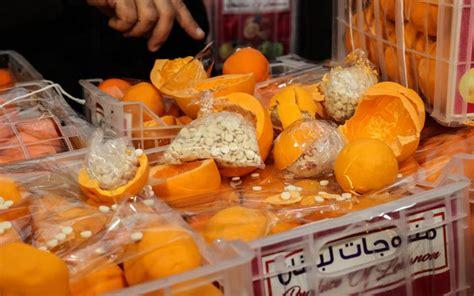
Hezbollah can be destroyed – by following the money
In well-hidden laboratories across southern Lebanon, Hezbollah recruits stir amphetamines together with cheap chemicals in large stainless steel pots. The result is Captagon, the so-called “cocaine of the poor”. Once finished, the drug will be sold to Gulf nations and the profits – in the tens of millions of dollars – used to fund terrorism.
Drug trafficking is forbidden by Islam. But Hezbollah has developed a pragmatic approach to the issue. The organisation does not manufacture the drug for the Muslims themselves, but for the “enemies of Islam” – the Gulf states, especially Saudi Arabia, where the Sunni regime is a political and religious rival to the Shias represented by Hezbollah and Iran.
Israel is striking Hezbollah as it has never done before. Extensive military attacks, targeted assassinations of senior commanders, and destruction of critical infrastructure have badly shaken the organisation. But it is not completely destroyed.
It is reasonable to assume that at some point, Hezbollah will look for a way to a ceasefire or an arrangement, with the understanding that it cannot bear the continued heavy losses.
International pressure, especially American pressure, will be exerted on Israel to accept one. It is likely that Israel will eventually be forced to agree to a cessation of hostilities, without completely toppling Hezbollah. This will be a critical opportunity to ensure that Hezbollah does not quickly regain strength and become a strategic threat again.
In order to prevent Hezbollah from gaining strength after a ceasefire, Israel and the international community must “follow the money”.
The real strength of the organisation lies not only in its weapons and military capabilities but also in its sophisticated economic apparatus. No less than 40 per cent of Hezbollah’s revenues come from trading Captagon. Captagon laboratories in the Bekaa Valley are the main target of the operation.
A direct and targeted attack on these facilities could harm Hezbollah’s production and distribution capability. Alongside the actions on the ground, international cooperation is also needed to check the Lebanese banking system, which allows Hezbollah to launder the profits from drug trafficking.
Several Lebanese banks serve as important tools for financing the organisation’s activities and are a critical link in its revenue chain. There must be strict international economic sanctions on banks and financial entities that support Hezbollah.
Hezbollah has succeeded in establishing itself as a military and economic force in Lebanon, while the Lebanese army remains a weak “barefoot army”, mainly in terms of funding. While a Hezbollah fighter earns about $1,500 a month, and a soldier in the Lebanese army earns just $300.
These salaries come to a large extent from the drug trade, and cutting the ability to fund them will harm the motivation of Hezbollah’s fighters. Slashing the source of Hezbollah funding may also reduce its status in the Shia community, limit its ability to recruit fighters and slash the finances for treatment of the wounded.
In any future agreement reached after a ceasefire, it will be necessary to demand the deployment of the Lebanese army in the south of the country, especially in areas currently under Hezbollah’s control.
The Lebanese army must serve as a real buffer against Hezbollah and ensure that the southern regions do not return to being a base for terrorist attacks against Israel.
But for this purpose, there is a significant need for the economic and military empowerment of the Lebanese army today; the gap between Hezbollah’s budget and that of the Lebanese army is inconceivable. The international community, in cooperation with the Gulf states and Israel, should build up the army and eradicate that gap.
The struggle against Hezbollah cannot rely only on military operations. As the famous drug lord El Chapo said: “Las balas no matan al hambre, pero el dinero sí” – “The pills don’t kill hunger, but the money does.”
For Hezbollah, money is the most powerful tool. By damaging its sources of income – drug labs, Lebanese banks and the economic systems that allow it to operate – it can be effectively weakened.
Source » telegraph.co.uk





